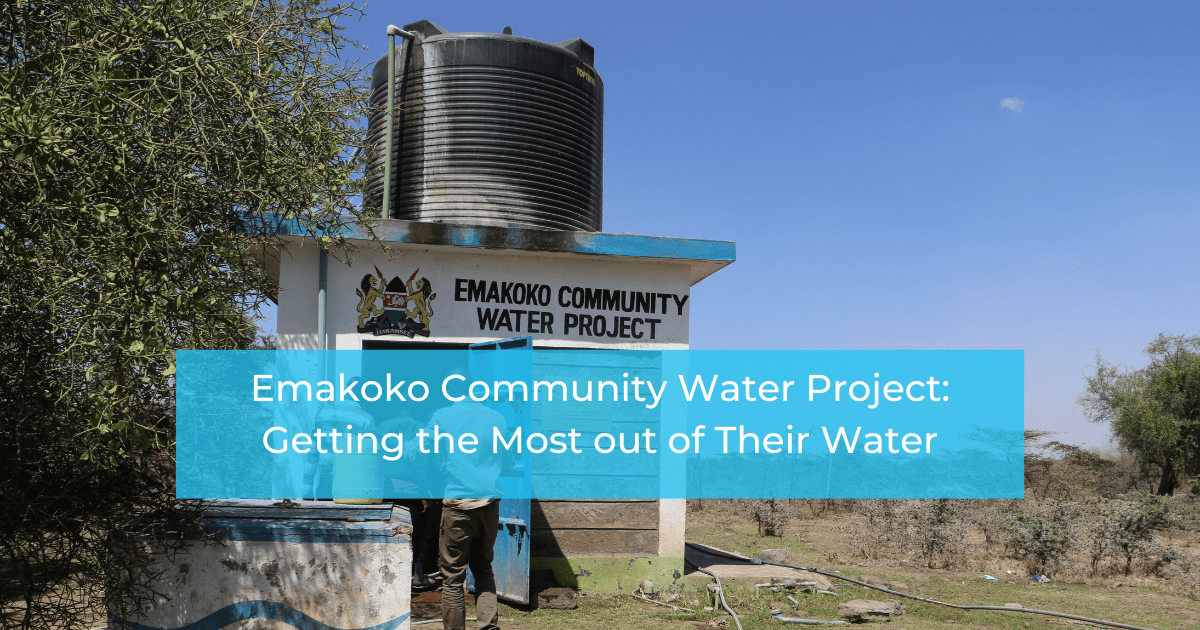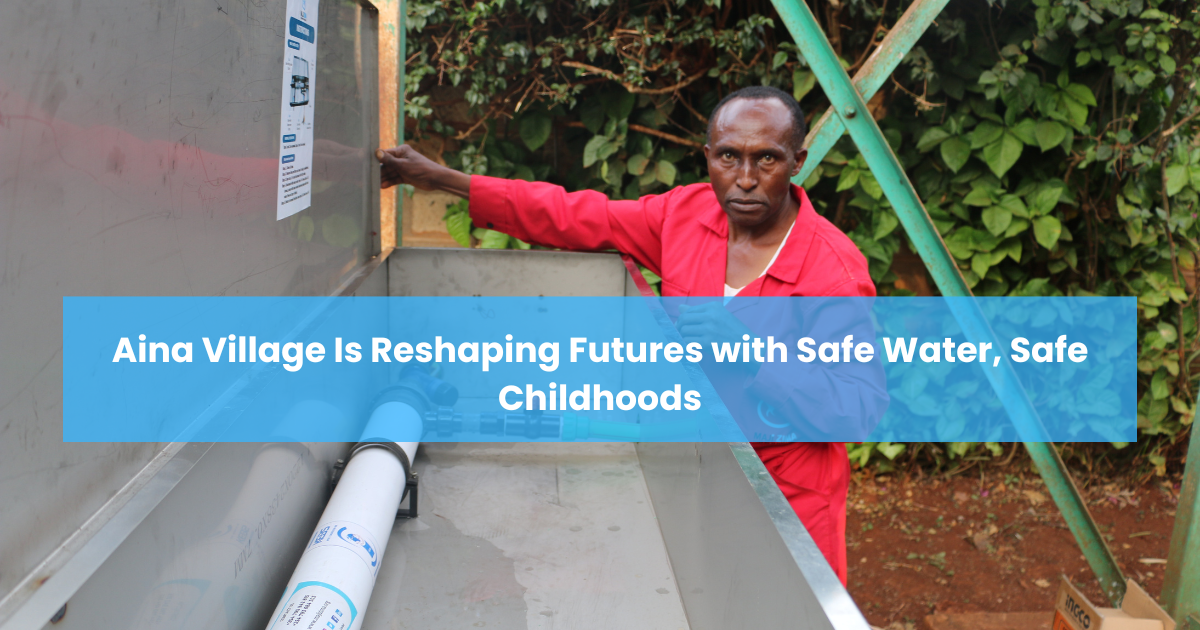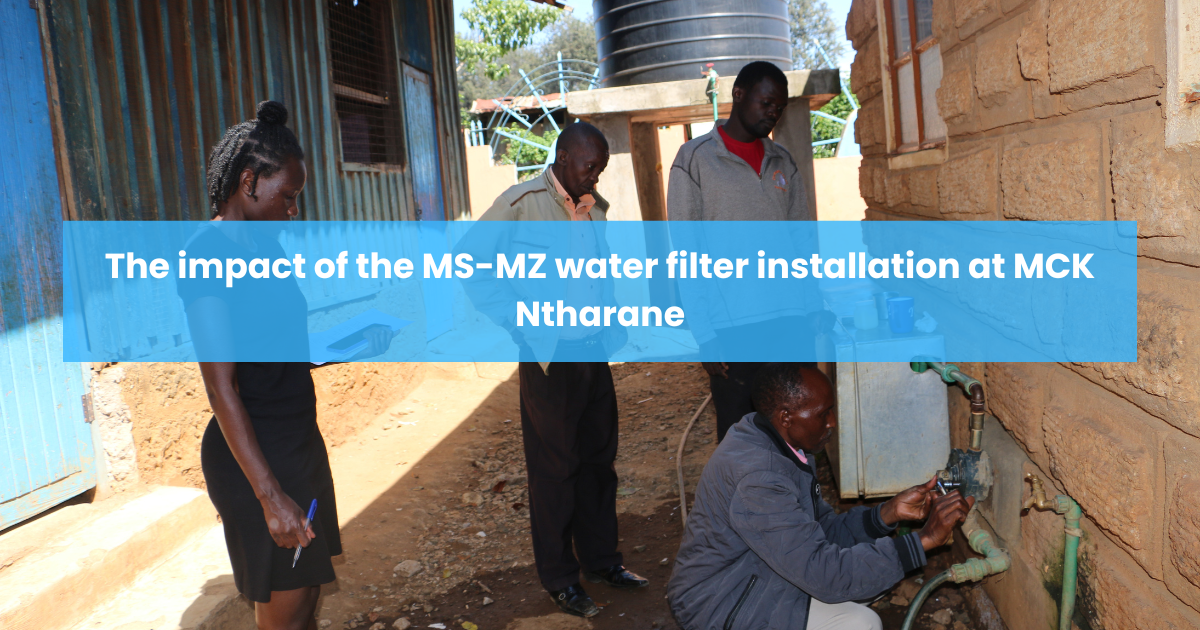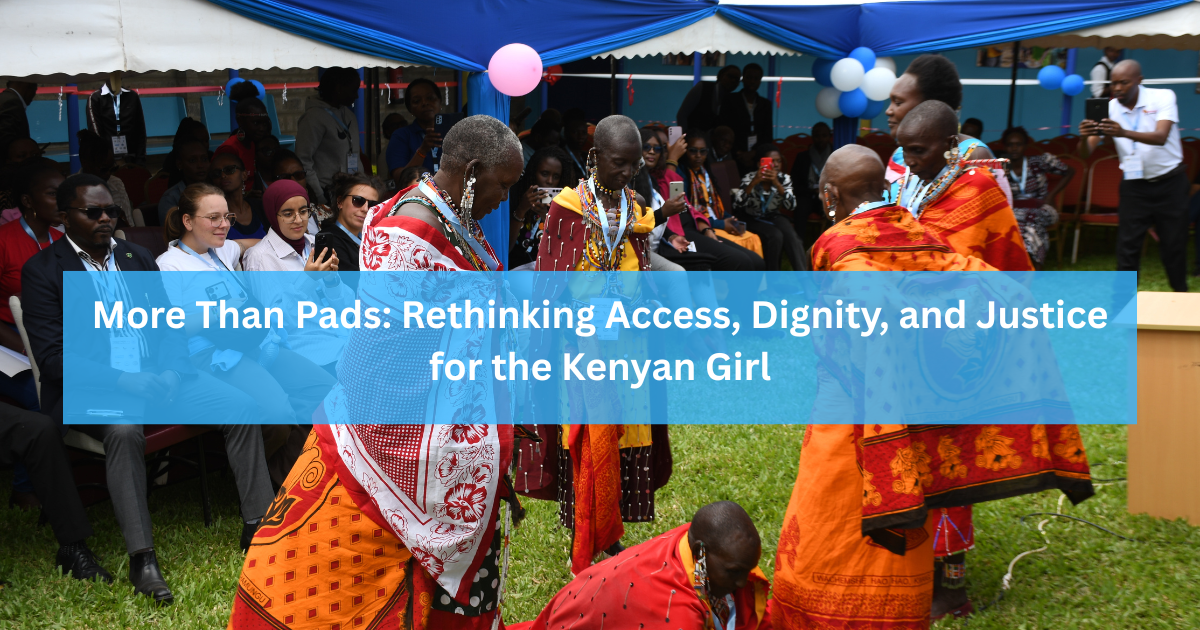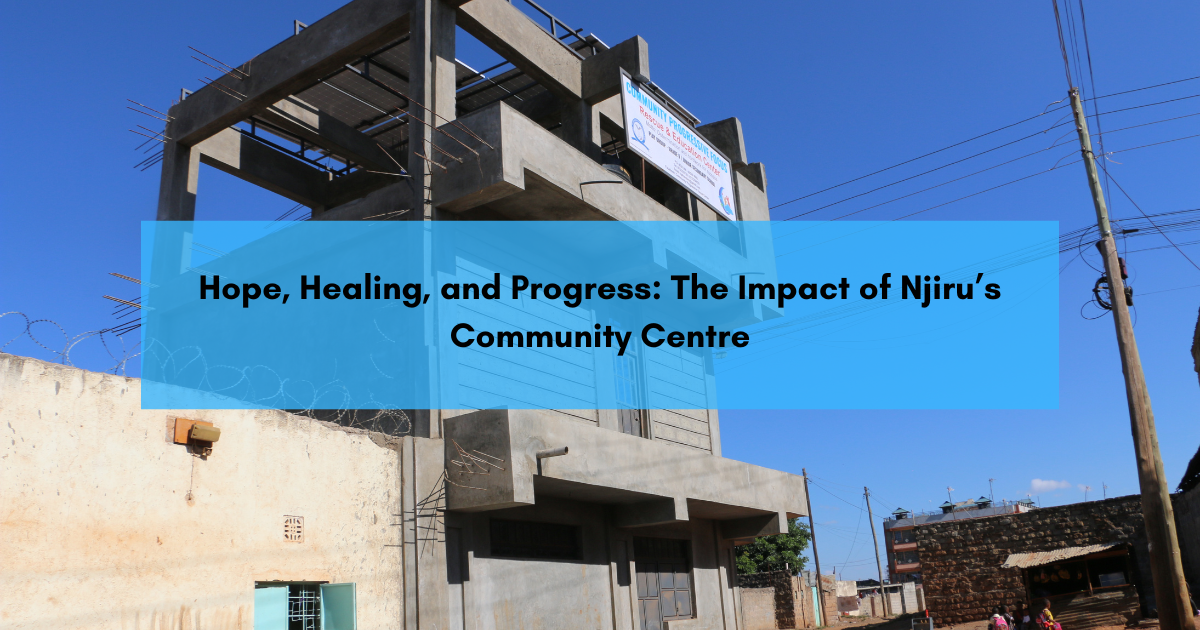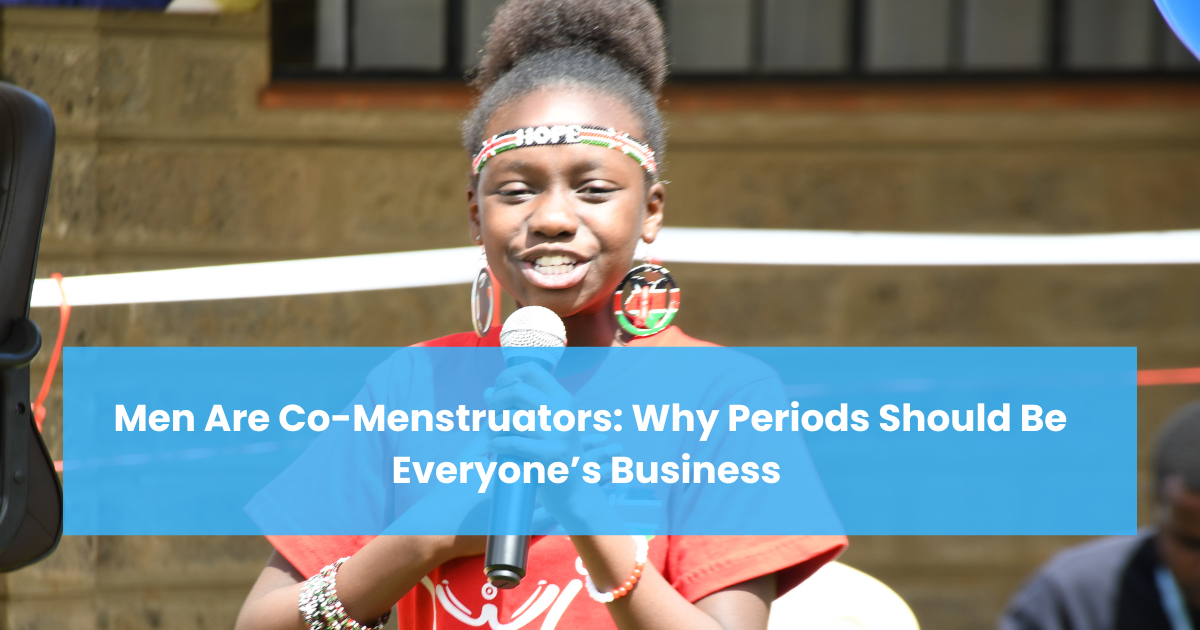
Recently, we had the opportunity to visit Emakoko primary school in Emakoko Village, Kajiado County, to install the MS-MZÂ water filter in partnership with Girl Child Network. As we made our way to the school, we couldn't help but feel a sense of excitement and anticipation. We knew that the water filter we were installing would significantly impact the lives of not only the students and teachers at the school but also the community at large.
Upon arrival, we were received by Mr Stanley, the school's headteacher, who was eager to learn more about the MS-MZ water filter and how it worked. The area chief and a few locals soon joined us, they were equally excited to see what we had brought. We had the opportunity to walk around the school and learn more about what they do and their daily challenges.
Challenges the School Faces
We met their lovely Deputy Principal, who told us more about the school. She said Emakoko Primary School was started in 1998 as a preschool. It has since grown to a primary school with 252 students. One hundred of whom are boarders. They have 14 teachers and three non-teaching staff. We were also interested in knowing their challenges besides health issues related to drinking dirty, unfiltered water. One of the significant challenges they face as a school is a drought most of the year. Kajiado County is semi-arid, receiving very little rainfall yearly.
The state of the washrooms at Emakoko Primary School
Besides that, the community in that area is mostly Masaai, who are pastoralists and practice very little crop farming. This means that the school often needs to buy food to sustain them. Another problem that the school faces is that though they have borders within the school, the girls need bathrooms. Thus they have to bathe outside, which is not safe given that the area has some wild animals roaming around. They hope that well-wishers can come forward and help them solve this issue. Further to that, their pit latrines are full. Since the school is in a low-income area, they can't constantly ask the parents to chip in and help them drain the toilet; they, therefore, depend on well-wishers to assist.Â
With CBC, the school had to develop a Junior Secondary School classroom. They lacked the desks to make their pupils comfortable. Some students have to share desks to continue with their classes. They do not have a laboratory, lab equipment, or books. They are calling on well-wishers to help solve these issues.Â
The MS-MZ Water Filter Installation Process
The Plumbers putting together the MS-MZ water filter at Emakoko Primary School
During our discussion, the deputy thanked us for the water filter donation. The filter was not only going to serve the school but also 209 community members. He hopes that when the infrastructure improves, more people will move closer and get access to clean drinking water. According to her, the community water project is a source of income for the locals.
When we returned to the site, we had curious community members trying to figure out what was happening. They were eager to see the filter in action, and many had questions about how it worked. Our MS-MZ water filter is straightforward. It is a gravity-fed water filter that requires a raised tank to work effectively. It has micro-pores that remove impurities and contaminants from the water, making it safe for drinking.Â
Once the installation was done, we explained how the filter worked to a group of students and teachers. We also discussed the maintenance and upkeep of the water filter and how the students and teachers could work together to ensure that the filter continued to work effectively. We explained to the students and teachers the importance of clean and safe drinking water and how the filter could help prevent waterborne diseases. We practically conducted a water filtration process and allowed the students to ask questions. We answered their questions as best we could and issued them with manuals.Â
Mercy Chebet Training Emakoko Primary School pupils on the MS-MZ water filter maintenance
Conclusion
As we said our goodbyes and left the school, we couldn't help but feel a sense of satisfaction and fulfilment. Knowing that we had made a tangible difference in the lives of these students, teachers, and the neighbouring community was an enriching experience. We were grateful for the opportunity to work with Girl Child Network to bring clean and safe drinking water to this community. We know that the impact of our donation will be felt for years to come. We hope to visit the school in a few months to see the difference the filter has made in their lives.Â
